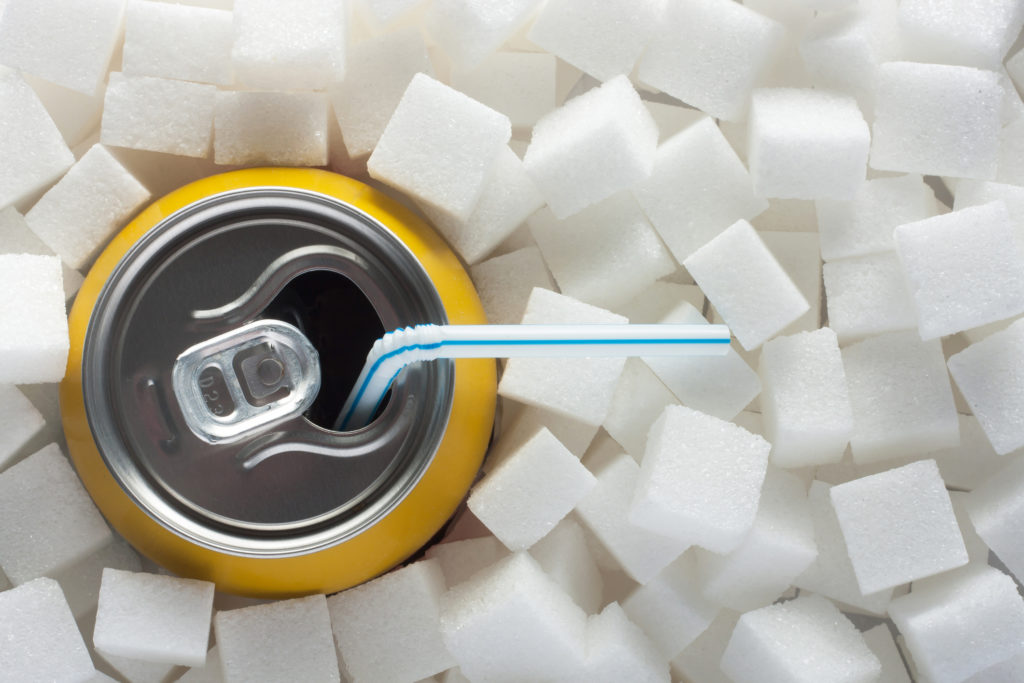Don’t Let Sugar Ruin the Health of Your Smile

Sugar is everywhere. It’s artificially added to the foods we eat and the beverages we drink. Nearly every non-fresh fruit or vegetable you buy at the store includes added sugars that sweeten and preserve the foods on our shelves. At the Beaverton Dental Center, our family dentist advises patients to limit the amount of sugar they consume daily.
The U.S. easily leads the world in sugar consumption, with the average person consuming 126.4g of sugar daily. The nation with the second sweetest tooth – Germany – consumes 102.9g of sugar daily, nearly 25 percent less than Americans. While these two nations may lead the field, sugar consumption is a global problem.
Considering the excessive sugar intake, it’s not surprising that tooth decay ranks as a significant global problem. In the U.S., 26 percent of adults suffer from untreated tooth decay, and 90 percent of adults over 20 have developed at least one cavity.
According to the Food and Drug Administration, there are five reasons to add sugar to food, and increasing sweetness is only one of them.
The other reasons include:
- Color
- Fermentation
- Texture
- Preservation
Our family dentists see the damage sugar causes to our patients’ oral health daily. Excess sugar consumption leads to tooth decay, cavities, and gum disease. If any of these conditions go untreated, they can cause permanent damage to a patient’s long-term oral health.
How Much Sugar is Too Much?
The American Health Association recommends that women consume no more than 100 calories a day of sugar, while men should limit their sugar consumption to 150 calories. That equates to 6 teaspoons or 24g for women and nine teaspoons or 36g for men.
To give these numbers some context, consider that the average 20-ounce bottle of soda, sweetened tea, or sports drink contains about 65 grams of sugar, nearly double the recommended daily amount for men and nearly triple the amount for women.
Drinking just one 12-ounce can of soda daily can cause five pounds of weight gain a year.
While weight gain offers reason enough to cut back on the amount of sugar in a diet, the impact sugar has on your teeth is even worse.
Sugar’s Impact on Oral Health
Tooth decay and gum disease are caused by plaque, a sticky biofilm comprised of harmful oral bacteria. Plaque uses the sugars you consume to produce harmful acids that slowly weaken tooth enamel. The more sugar you consume, the more fuel you provide plaque to attack your teeth.
Individuals with diets high in added sugar risk developing tooth decay, gum disease, and cavities. When these common oral health issues go unaddressed, they increase the risk of developing more serious issues, such as gum recession, root failure, and bone and tooth loss.
Research has also found connections between sugar intake and diabetes risk. Patients with diabetes often have complex oral health needs due to how the disease impacts the mouth, especially when it comes to gum disease.
Regularly drinking beverages with high sugar content, such as soda, can have twice the negative effect on an individual’s oral health. Carbonated beverages have a higher acidity, which changes the pH levels in the mouth. This creates an environment where tooth enamel becomes softened, making the damage done by plaque feeding off the sugar in soda all that more destructive.
Protecting Your Oral Health
To enjoy a healthy smile that lasts a lifetime, you need to limit the amount of sugar in your diet. Cutting back on just one soda or sports drink a day can make a significant difference in both the number of calories you consume daily and to the state of your smile.
If you have any questions about what sugar can do to your oral health, ask any member of our team during your next visit to Beaverton Dental Center.
